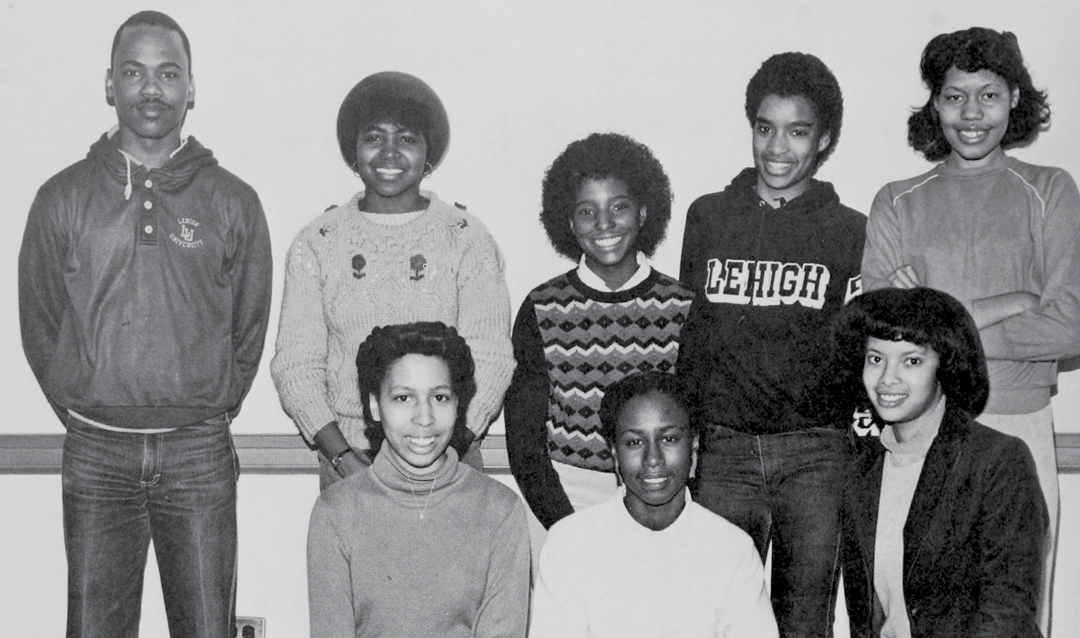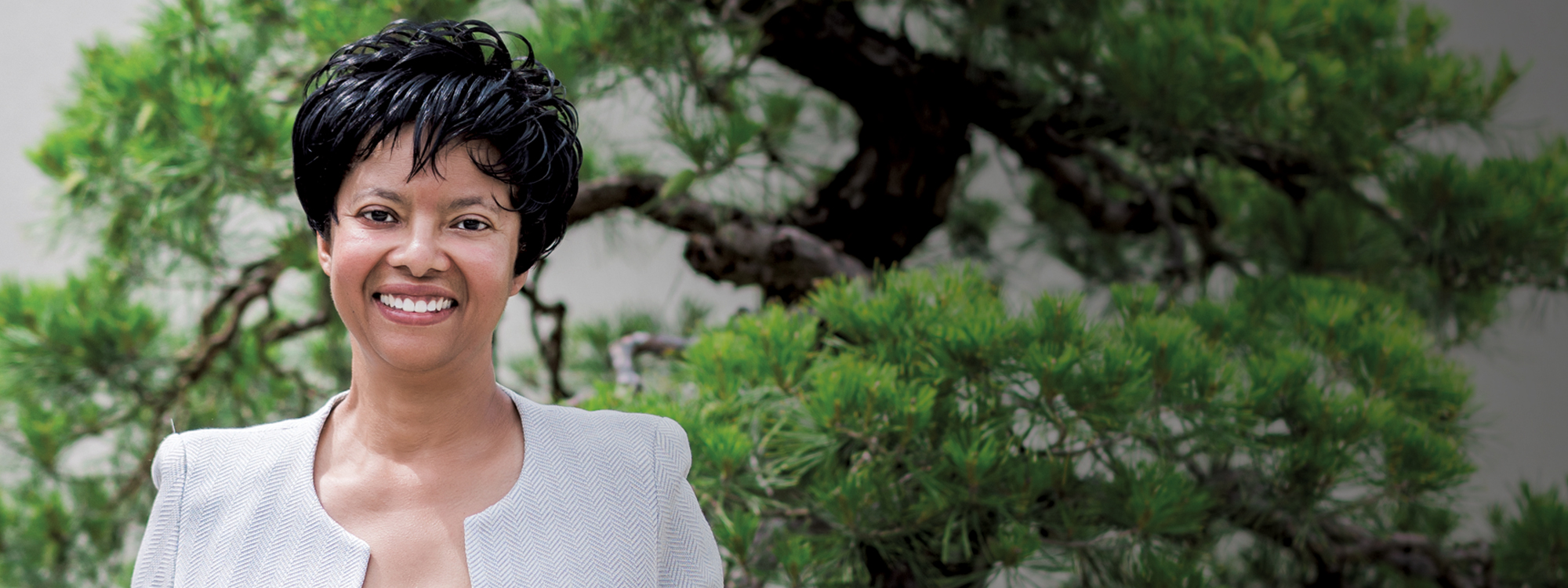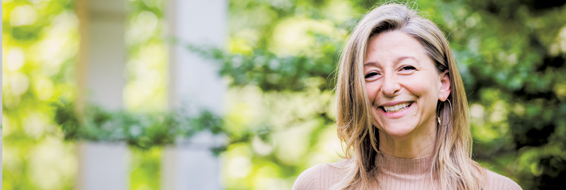I received my Lehigh acceptance letter with an invitation to attend prospective freshmen weekend. This weekend provides an opportunity to meet other incoming minority students and see the campus firsthand. We’re all smart, we’re feeling good about being there. I remember we were trying to find out who was coming back and possibly identify a roommate.
I was so enamored by Lehigh’s campus, a tranquil and serene place, not like colleges at home, in Washington, D.C. I told my parents I liked Lehigh, but my mom said, “We have other schools to visit before making the final decision.” But Lehigh became my standard in measuring all the other schools.
Who would have imagined the next four months I would reside in Richards 306? When it was time for my parents to deposit me at Lehigh, we were surprised I was assigned to an upperclassmen coed dorm. The first and second floors were male, the third floor was split, male and female, and the top floor was female. It was an interesting living situation. It was, okay, I’ll adapt, I’m in college.
I remember being at the Alumni Memorial Building looking toward Packard, and saying to myself, Lehigh is a microcosm of the real world. If I can make it here, I can make it anywhere. That stayed with me. Later at the pep rally, I remember a Lehigh staffer saying, “Turn to your left, turn to your right, because one of you won’t make it, one of you won’t graduate from Lehigh.” That was motivation. I was coming out of Lehigh with a degree. It was not going to be me.
And it wasn’t me. I graduated in four years.
My area of study was biology, but it was an interest, it wasn’t a passion. Later on in life I had to discover what my passion was.
My typical day was going to class, studying and reducing stress by working out. My hangout place was in the stacks at Linderman Library, my second home. To this day I can remember finding the best places to study there.

Sherrie Blevins Green ’84 (first row, far right) directed the Lehigh University Gospel Choir
I think everyone at one point in their collegiate experience gets discouraged. When you go to class and you hear the average on an exam was a 40, it’s deflating. For a lot of us in STEM, that was a wake-up call. How in the world can you score 40 on an exam when you’ve always been scoring 90 and above? You start having some doubts about yourself, but for me, I had the mindset, Lehigh is not going to break me. I am going to get this degree. I’ll figure it out.
I’ll never forget my microbiology lab partner coming to class so distraught because a professor told her and another female student in the class they didn’t belong in math. At that moment, I became aware of negative attitudes, that some professors felt women didn’t have the fortitude to survive in STEM.
I’m convinced, for the most part, a student can receive solid academic preparation if they’re motivated, study really hard and supplement their learning through internships and professional enrichment activities. But there are other important attributes some tend to lack—initiative, tenacity, self-assurance, creativity and resourcefulness. These are traits you develop in order to graduate from Lehigh, as well as to prepare yourself for life’s challenges. Lehigh tested your scholarship, but it also tested your discipline, confidence, strength of character and stress level. I developed the disciplinary competence and interpersonal skills required to thrive in the STEM profession.
"I’ll never forget my microbiology lab partner coming to class so distraught because a professor told her and another female student in the class they didn’t belong in math. At that moment, I became aware of negative attitudes, that some professors felt women didn’t have the fortitude to survive in STEM."
So what happens? A metamorphosis really occurs at Lehigh, at least it did for me, a transformation of your mind where you begin to approach situations differently, begin to think critically and strategically like a scientist, an engineer or a business person.
Green went on to make her mark at the National Science Foundation, where she was program manager for several congressionally mandated programs, including the Academic Research Infrastructure Program and the White House National Medal of Science. Early on, she participated in NSF’s outreach program to encourage young people to choose careers in science and engineering.
At the time NSF had this motto: With a brain, books and a curiosity, you can be anything that you want to be. I went to John Carroll Elementary School in Maryland for career day. Next thing I know, the principal and students are inviting me to come back as their commencement speaker.
After the talk a little girl comes up to me … and she says, “Mrs. Green, I want to be an engineer and a lawyer” and I said, “I think you can do it,” so I gave her my business card. That’s the day my mentoring started. I made the decision to invest my time in this young woman. Next thing I know, I’m going to her concerts and supporting her efforts in middle school, high school, college and graduate school. I was always there. Long story short, she is now a Ph.D. scientist working on infectious diseases.
In 2000, Green took over NSF’s STEM talent portfolio. Her supervisor, aware of her mentoring activities, charged her with creating a comprehensive internship program to encourage young people in their journey to STEM careers. Her inaugural class had 20 students.
Mentoring is my passion. I recognized in students where I was at, at Lehigh, nobody to mentor me. Each year, I would say I’m giving up the SSIP [Summer Scholar Internship Program] reins but then there’s year two, year five, all the way until my 21st cohort. These students allowed me to accompany them on their academic and professional journeys, and I was able to see them be successful, to help them see they could be successful. I am proud that approximately 60% of my students have gone on to attain advanced degrees in STEM.
At NSF we understand the need and responsibility to diversify and broaden participation in STEM. We are making some progress, but more needs to be done to support women and underrepresented groups in STEM. SSIP was my way of contributing to STEM by preparing a cadre of young professionals and bringing diverse persons to the table.
At Lehigh and in my career I felt I was always carving out my own niche and identifying opportunities to help me achieve. While I had a small support team at NSF to point me to opportunities, I had to do the work.
One of the things I had to understand and appreciate was my own definition of success. For me, success is pursuing and enjoying one’s passion without compromising one’s dignity, one’s integrity and one’s values. The values my parents instilled in me when I came to Lehigh, I maintained when I left. I learned that I couldn’t evaluate success by someone else’s standard of success.
Keys to success: Living by Proverbs 3:5-6, “Trust in the Lord with all thine heart and lean not on your own understanding; in all thy ways acknowledge Him, and He shall direct your path.” Being intentional in everything that you do and knowing your priorities. My priorities have always been faith, family and making a difference in the lives of others. NSF afforded me the opportunity to become a change agent.



